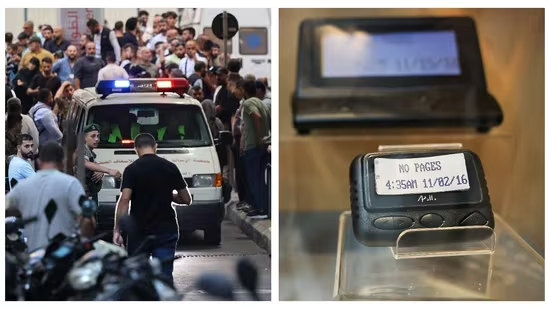
The Phytosanitary Certificate is a key document for exports trade compliance of plants and plant products. The sanitary and phytosanitary measures taken in fomenting of planned products are crucial for the exports to get accepted by the importing country.
Two of the most popular Indian spice brands, MDH and Everest are facing global scrutiny after Hong Kong, Singapore and Nepal suspended sales of their spice blends last month.
After regular screening, a cancer-causing pesticide — ethylene oxide was found in some of the company’s products. countries including the UK, Australia, the Maldives, and the US are ramping up their testing of Indian spice products.
This highlights the need for Sanitary and Phytosanitary measures are vital to prevent the spread of pests and diseases within countries and across borders.
Why is a Phytosanitary Certificate Important?
The Phytosanitary Certificate is a vital for exports of plants and plant products.
When plants or plant products are exported without proper inspection, they can carry pests or diseases that could harm the agriculture of the importing country. This could lead to economic losses, environmental damage, and strict trade restrictions.
Therefore, having the phytosanitary certificate reduces the risk of shipment being rejected or placed under quarantine, which can be costly and time-consuming.
What is a Phytosanitary Certificate?
A Phytosanitary Certificate is a document that confirms that plants or plant products being exported have been inspected and are free from pests and disease-carrying organisms;
This certificate is issued by the National Plant Protection Organization (NPPO) of the exporting country, and is sent to the importing country.
The certificate ensures that the plants or plant products meet the health standards required by the importing country to protect Member’s territory from damage arising from the entry, establishment or spread of pests.
Products Covered Under a Phytosanitary Certificate
The exporter needs to obtain the Phytosanitary Certificate for exporting the following types of products:
- A phytosanitary Certificate is an important document to export regulated articles such as plants, seeds, bulks, and tubers
- For exporting seeds for propagation, fruits and vegetables, cut flowers and branches, grain, and growing medium.
- The phytosanitary certificate is also needed for certain plant products that have been processed and have a potential for introducing regulated pests (For example, cotton or wood).
- PSC is needed to export contaminated articles such as empty shipping containers, vehicles, or other organisms.
Types of Phytosanitary Certificates
There are two main types of Phytosanitary Certificates:
Phytosanitary Certificate for Export purposes:
This is the standard certificate issued when plants/ plant products are being exported from one country to another.
It confirms that the products have been inspected and found to be free from pests and diseases.
The NPPO of the country of origin issues a Phytosanitary certificate for export.
A Phytosanitary certificate for export declares that the consignment meets the country’s Phytosanitary requirements.
Phytosanitary certificate for re-export purposes
This certificate is issued when plants or plant products that were imported into a country are being re-exported to another country.
It ensures that the products are still free from pests and diseases and have not undergone any treatments not recognized by the importing country.
A Phytosanitary Certificate for re-export will be issued by the NPPO of the re-exporting countries where the commodity was not grown or processed to change its nature in that country and only where an original phytosanitary certificate for export is available.
Prescribed Authority:
The prescribed authority for issuing the Phytosanitary Certificate for Export is the Plant Quarantine Information System, Department of Agriculture, Co-operation and Farmer Welfare, Government of India.
Validity Details:
To ensure the Phytosanitary integrity and physical integrity of consignment, the validity of PSC before export is limited to a maximum period of 7 days for perishable consignments and 30 days for non-perishable consignments. It should be ensured that the goods will be shipped immediately after certification.
Time Limit to Apply:
The applicant needs to apply at least 2-3 days before the actual date of the shipment of the consignment. In the case of the export of seed consignments, such applications need to be filed 8-10 days before the actual date of shipment.
Note: Export of perishable commodities such as cut flowers, fresh fruits, and vegetables, the above conditions may not apply.
what documents required phytosanitary certificate in India for Export ?
Obtaining a phytosanitary certificate in India involves a few essential documents. To simplify the process, ensure the following papers ready:
- Importing Country’s Permit: This permit from the destination country gives you the green light to export your goods or commodities.
- Wildlife Clearance Certificate: If your items fall under the Convention on International Trade in Endangered Species of Wild Flora and Fauna, you’ll need this certificate.
- Letter of Credit: A document showing your commitment to payment is crucial for smooth international transactions.
- Shipping Bill or Bill of Lading : Depending on the mode of shipping, provide the relevant bill, be it air, sea, or land transport.
- Packing List: A detailed list of your shipment’s contents is handy for proper identification.
- Export License: An authorization proving you’re allowed to export your products.
- Fumigation Certificate: This confirms your goods have undergone fumigation to prevent pests.
- Purchase Order: Your customer’s order details, ensuring everything is aligned.
- Fees and Charges: Be prepared to cover export inspection fees and fumigation costs.
- Invoice Copy: A copy of your invoice is a key part of any trade.
Benefits of Phytosanitary Certificates:
- Global Access for trade:
With these certificates, your fruits and veggies can travel to countries that demand healthy plant produce. - customs clearance:
Customs clearance becomes easy. Certificates speed up the process, minimizing delays at the border. - Importer Confidence:
Importers trust certified products. Certificates show the goods are top-notch and ready to enter the market. - Eco-Friendly export produce:
Adhering to health standards, makes the export produce eco-friendly for a greener planet. - Rejection Defense:
Certificates lower the risk of rejection. Export produce is less likely to be turned away due to health concerns. - Regulation Friendly:
Certificates simplify navigating international rules. Phytosanitary certificates are like a safety net for the product. From smooth entry into new markets to ensuring safe and healthy deliveries, they partner in successful fruit and veggie exports.
Summary:
Phytosanitary certificates are essential for ensuring safe international trade of plants and plant products. By complying with regulations, and working closely with Import country authorities, exporters can contribute to maintaining the health of ecosystems while enjoying the advantages of successful exports.




